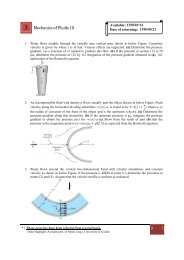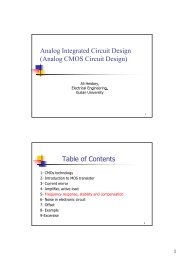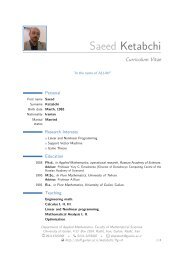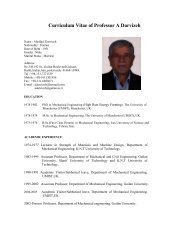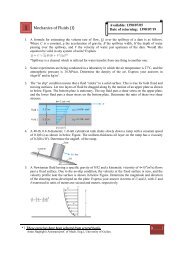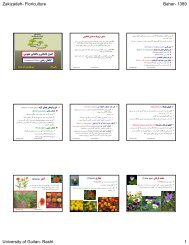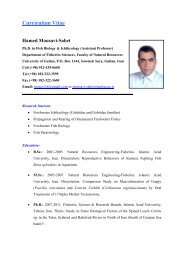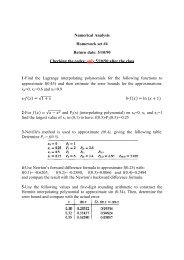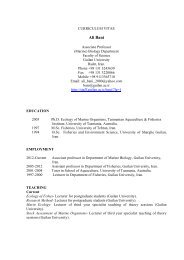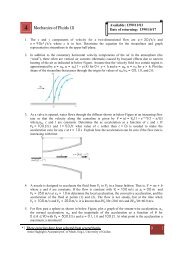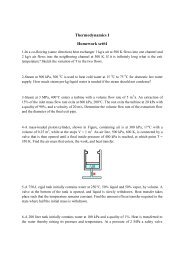Medical Tourism in Developing Countries
Medical Tourism in Developing Countries
Medical Tourism in Developing Countries
- No tags were found...
Create successful ePaper yourself
Turn your PDF publications into a flip-book with our unique Google optimized e-Paper software.
Offshore Doctors ● 61The Internet is undoubtedly the most important tool for <strong>in</strong>formation,both by consumers as well as suppliers of medical tourism. Its potential toreach a large number of people is huge. Use of the Internet is grow<strong>in</strong>glogarithmically and globally. 86 In 2004, Internet users worldwide numbered945 million but that number is expected to rise to 1.46 billion by 2007.Most of that rise is com<strong>in</strong>g from LDCs, especially India and Ch<strong>in</strong>a. Therehas undoubtedly been an <strong>in</strong>formation revolution. Internet commerce is onthe rise, and that <strong>in</strong>cludes medical tourism. Quite simply, the Internet hasopened the doors to medical tourism <strong>in</strong> develop<strong>in</strong>g countries. Throughtechnology, <strong>in</strong>formation is dissem<strong>in</strong>ated about the medical and tourist possibilities(a process that might be referred to as a googleoscopy). Just likethe Internet is the primary source of medical <strong>in</strong>formation for patients,enabl<strong>in</strong>g them to self-diagnose and self-treat, so too, it is the primary sourceof <strong>in</strong>formation about facilities and procedures, enabl<strong>in</strong>g them to choose adest<strong>in</strong>ation site for their medical needs. At the same time, travelers are tak<strong>in</strong>gover from travel agents and gett<strong>in</strong>g on the Internet to create their owntrips. Both health-care and hospitality <strong>in</strong>dustries are benefit<strong>in</strong>g from theInternet and, both, are fueled by a decentralization of decision mak<strong>in</strong>g bythe consumers.The Internet is also used by health-care providers to advertise their services.Sources <strong>in</strong> LDCs have jumped at the possibility of its use as it helpskeep their market<strong>in</strong>g costs down (they may or may not supplement theirmarket<strong>in</strong>g with more expensive advertis<strong>in</strong>g). The government of Malaysiahas launched a website <strong>in</strong> 2006 to promote its services. 87 In Cuba, theInternet is the only way to reach the U.S. market given prohibitions associatedwith sanctions. Cubanacan (abbreviation for the Cuban health andtourism organization, Cubanacan Turismo y Salud) and SERVIMED (aspecialized trad<strong>in</strong>g company founded <strong>in</strong> 1994 for medical tourism), advertisemedical holiday packages on the INFOMED portal (the Cubannational health care telecommunications network and portal). 88The range of websites offer<strong>in</strong>g medical tourism <strong>in</strong>formation is astound<strong>in</strong>g.Many are general. For example, medicaltourism.com offers 31 locations<strong>in</strong> India, 8 <strong>in</strong> South America, 6 <strong>in</strong> the Middle East and Africa, 17 <strong>in</strong>Southeast Asia, 21 <strong>in</strong> Europe, and 5 <strong>in</strong> other dest<strong>in</strong>ations (Fall 2005). Someare organized geographically, either by country or larger region. For example,ArabMedicare.com is the ma<strong>in</strong> source of onl<strong>in</strong>e health <strong>in</strong>formation forthe Arab-speak<strong>in</strong>g world. 89 It is a po<strong>in</strong>t of reference for countries such asJordan, Malaysia, Thailand, and India. It provides <strong>in</strong>formation aboutmedical facilities and medical treatment packages and it helps potentialpatients work their way around <strong>in</strong>surance companies and health-care providers.ArabMedicare.com has begun talks with government health agencies,



